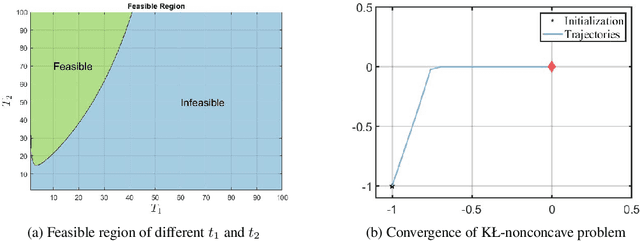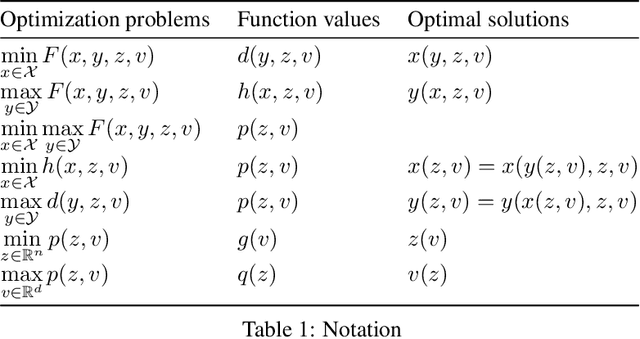Doubly Smoothed GDA: Global Convergent Algorithm for Constrained Nonconvex-Nonconcave Minimax Optimization
Paper and Code
Jan 05, 2023



Nonconvex-nonconcave minimax optimization has been the focus of intense research over the last decade due to its broad applications in machine learning and operation research. Unfortunately, most existing algorithms cannot be guaranteed to converge and always suffer from limit cycles. Their global convergence relies on certain conditions that are difficult to check, including but not limited to the global Polyak-\L{}ojasiewicz condition, the existence of a solution satisfying the weak Minty variational inequality and $\alpha$-interaction dominant condition. In this paper, we develop the first provably convergent algorithm called doubly smoothed gradient descent ascent method, which gets rid of the limit cycle without requiring any additional conditions. We further show that the algorithm has an iteration complexity of $\mathcal{O}(\epsilon^{-4})$ for finding a game stationary point, which matches the best iteration complexity of single-loop algorithms under nonconcave-concave settings. The algorithm presented here opens up a new path for designing provable algorithms for nonconvex-nonconcave minimax optimization problems.
 Add to Chrome
Add to Chrome Add to Firefox
Add to Firefox Add to Edge
Add to Edge